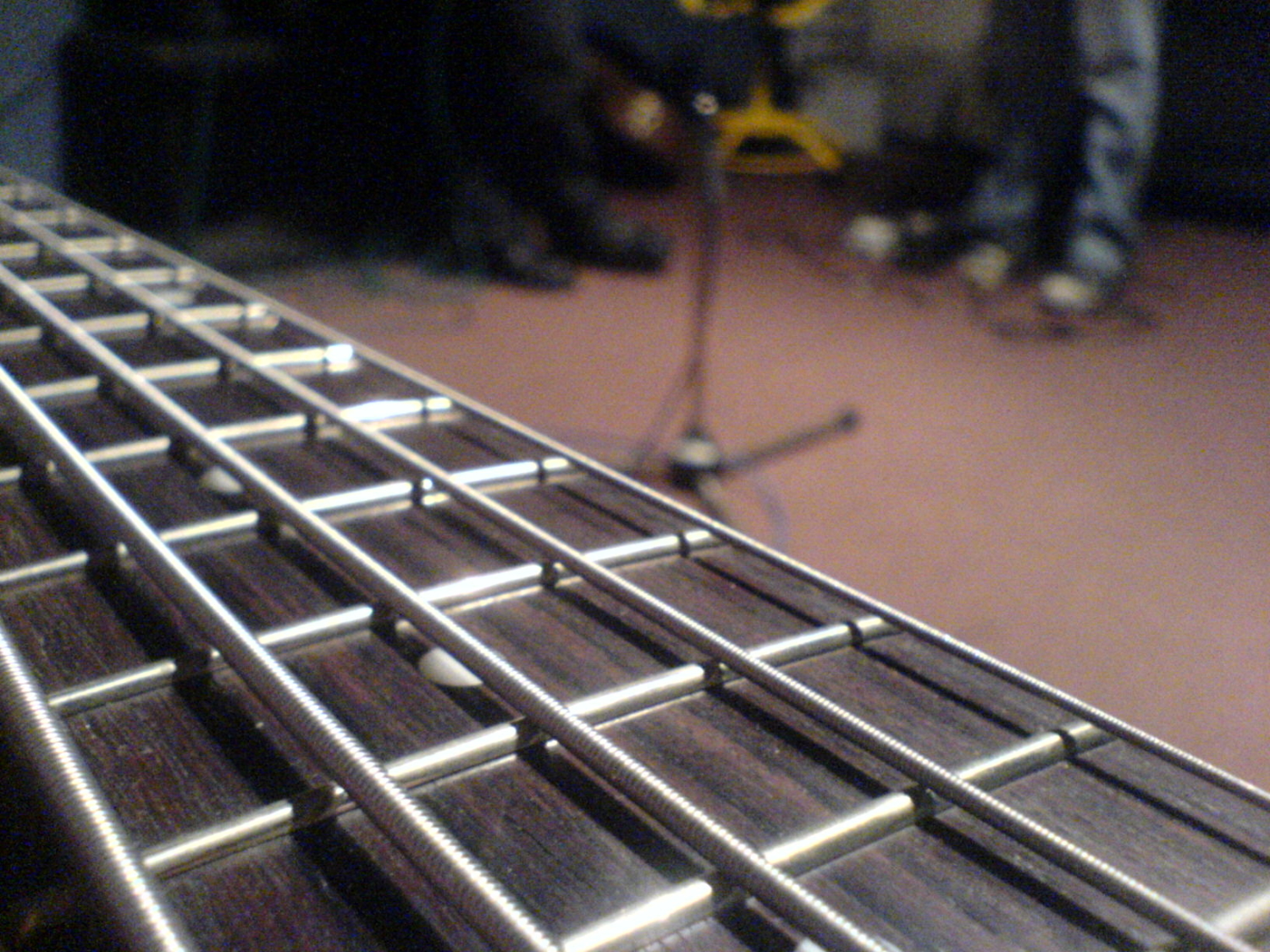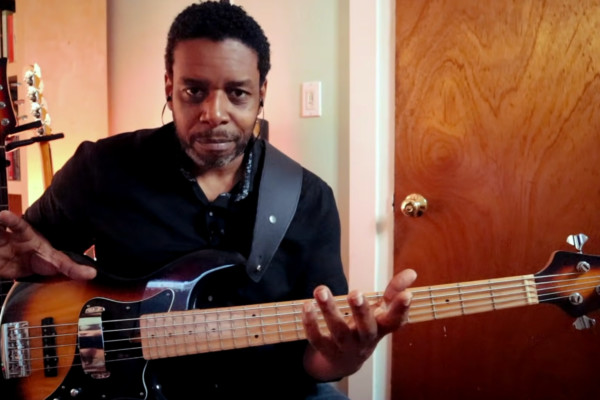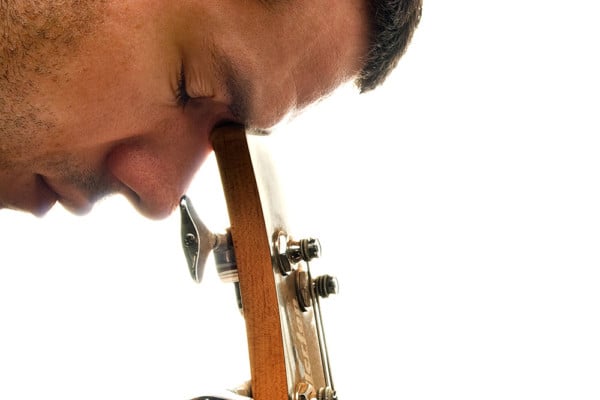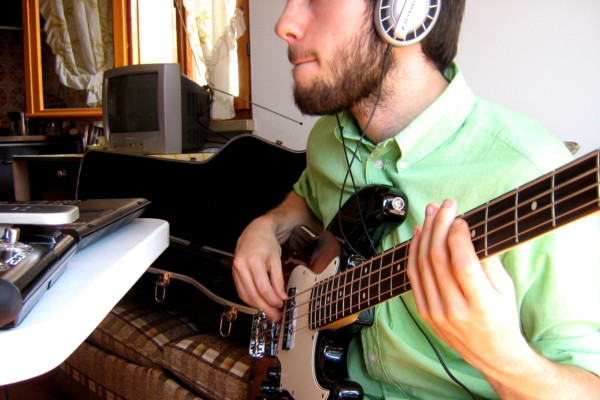The Lightbulb Moment: This Is Why I Practice

There’s an old saying that goes: if it were easy, everyone would do it. Playing music isn’t easy. Navigating the fretboard is confusing, playing with a metronome can be tedious, and there’s a never-ending list of songs to learn. Despite all of the work that goes into playing music, most of us love it and in many ways, are defined by it. Each one of us that takes on the challenge of playing an instrument goes through periods of inspiration, enjoyment, and fulfillment—moments where we satisfy our desire to create and realize that we’ve grown somehow, someway. And yet, on our journey towards reaching those moments, there are stages of frustration, apathy, stagnancy, and self-doubt. There’s a question that lingers in our mind, a question that is omnipresent and can hover over us like a dark cloud of defeat: Why do I practice?
Frankly, most of us don’t know how to answer this question. Perhaps we know that we “like” playing music, but we don’t know why that is. Asking yourself about the “why” can be a great way to help you establish goals, guide your practice, and help you decide whether music should be your hobby or your profession. First and foremost, identify what you enjoy. Here are some things to think about:
- Performing on a stage. If you like the feeling of being on a stage, bathed in colorful lighting, with butterflies in your stomach and the adrenaline pumping in your veins, then make this a goal. Find a band to play with, book shows, and let each performance act as a well-earned notch in your belt. If you’d prefer not to officially join a band, then visit open jam sessions, learn lots of songs, and try to be a “for hire” player.
- Jamming with friends. If you’d rather be in a “safe space,” such as your basement or garage, then don’t worry about performing in front of an audience. Try to put together a jam session with a few of your buddies and let that be the highlight of your week.
- Recording in the studio. Some people love being in the studio; others don’t care for it. Recording allows you to capture your ideas and perfect them, revisit them, manipulate them, and build upon them. It puts a microscope over your playing, magnifying the positive and negative elements of your timing, technique, and tone. If you like recording, gear your practice towards smoothing out the rough edges of your playing and learn how your instruments sound in the studio. Try to put together your own group and create a recording budget or join a band that has the intention of making a record.
- Playing cover songs. If you enjoy learning classic bass lines and playing your favorite songs, then go for it. Make a list of songs that you really want to learn and get to work. It could eventually lead to playing club dates or private events, such as weddings and corporate parties where people hire bands to play the hits.
- Creating original music. Perhaps you’re a composer, or you enjoy playing in a band and writing original tunes. If that’s the case, don’t worry too much about learning the bass line to “I Want You Back,” and instead, give yourself time to be creative. Find a way to make the music you enjoy and set up a small home studio or work with players of a similar mindset.
- Playing and improvising over standards. The jazz world can often be the happy medium between covers and composing. If you thrive on the challenge of harmonically and technically difficult music, then push yourself in this direction.
- Developing technique. Some of us love working on scales, arpeggios, and technically demanding music. There’s enjoyment to be found by playing and excelling at exercises, especially if you’re trying to develop plucking, slapping, or picking techniques. If you fit the bill, make technical practice an important part of your routine and keep bumping up the bpm.
- Reading music. There are plenty of transcriptions, classical pieces, and books that are worthy of study. If you enjoy reading music, a great goal may involve theater or classical productions that challenge you to read with a group.
- Learning by ear. For the aural learners out there, listening and learning by ear is a great way to excel at music. It will help you improve as a player, a band member, a studio musician, a reader, and a composer. Put on a song, pick up your instrument, and figure it out without looking up music or TAB.
- Understanding theory. Many players thrive on knowing the ins-and-outs of composition and improvisation. Taking private lessons, reading theory books, or working your way through an online course can be a great way to learn the “why and how” of music.
While this is just a short list of things to consider, they all speak to what it means to be a musician. These concepts certainly aren’t mutually exclusive; for instance, you need a certain amount of ear training, theory knowledge, and technical ability to play jazz, work in the studio, or even start a band. However, it’s important to understand the validity of these concepts and if they’re essential to your personal musical development. If you’re a hobbyist and don’t care for reading music, then you probably don’t have to work too hard on that. If all you want to do is have a band and play shows, then figure out how to make that a priority. It’s easy to get frustrated and doubt yourself when you can’t foresee the fruits of your labor. It’s even easier to get discouraged when you’ve lost the enjoyment that music is supposed to bring you.
So, if you haven’t done so lately, take some time to ask yourself “Why Do I Practice?”
Ryan Madora is a professional bass player, author, and educator living in Nashville, TN. In addition to touring and session work, she teaches private lessons and masterclasses to students of all levels. Visit her website to learn more!



